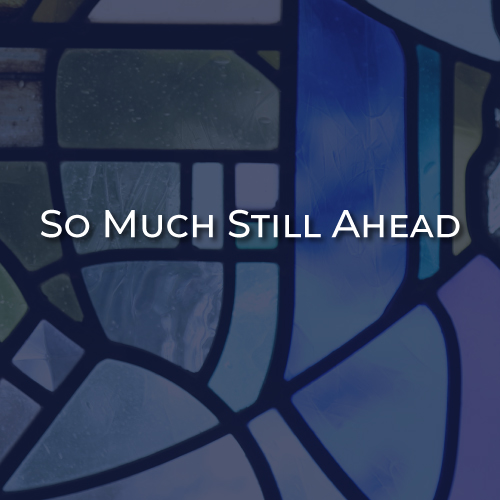Our Heritage in Hymns
Posted on: April 28, 2022
by: Colton Underwood, Associate Pastor of Children, Youth and Families
by: Colton Underwood, Associate Pastor of Children, Youth and Families
At one point in the not-so-distant past, I (like many my age) looked at the old hymnal that I grew up with and considered it a relic of a bygone era, something that desperately needed to be moved past in order to remain “current.” It was something I only faintly remembered reading as a child before my home church, like so many, decided the same. Yet, as the Lord would have it, my days of cracking hymnal spines were far from finished as I was confronted with this tradition once more when the Lord led Rachel and me to worship and serve in several small PCA churches in Mississippi while I was in seminary. I remember distinctly kicking against the goads at first, refusing to appreciate the rich history preserved in these contexts. Through the quiet leadership of previous mentors and the Lord’s softening of a proud heart, slowly the joy and beauty to be found crept in, at first in trickles, and later in a flood. While I respect and appreciate the variety of traditions of praise within the Christian heritage and in numerous cultures and contexts, I’ve become more and more convinced, as time goes by, that the songs of ages past are songs to which we should return.
The beauty of a hymn is more than just in its sound; admittedly, the simple tune played on a piano with a few voices to sing out its lyrics is often an underwhelming experience. Many things in life are perfectly simple, even mundane at first glance. Waking up and taking a warm shower, cooking and eating a meal, that first sip of coffee, small talk with strangers, driving home through the Baton Rouge traffic. The list endlessly goes on. These are plain things, everyday tasks and experiences, but the depth to be found in each of these is so much more than what we might first acknowledge. We take so many profound things in life for granted and the simplicity and modesty of a hymn is no different. For this reason, in addition to what many perceive as archaic language, many of us turn our noses up at songs from “grandma’s church,” yet, in doing so, we rob ourselves of honest beauty, profound faith, and substantial theology. But why?
What person who knows the transcendence of God is not stirred to sing to the Holy One of Israel: “Holy, holy, holy! Though the darkness hide thee, though the eye of sinful man thy glory may not see, only thou art holy; there is none beside thee perfect in pow’r, in love and purity”? What soul convicted of sin finds no comfort in singing, “Not the labors of my hands can fulfill thy law’s demands; could my zeal no respite know, could my tears forever flow, all for sin could not atone, thou must save, and thou alone”? Or what troubled heart is not strengthened in crying with brothers and sisters: “Whate’er my God ordains is right: here shall my stand be taken; though sorrow, need, or death be mine, yet I am not forsaken. My Father’s care is 'round me there; he holds me that I shall not fall: and so to him I leave it all”?
I believe it’s high time that we reclaim our heritage in hymnody, an inheritance in song that has stood the test of time. If we were to take the time to sing, study and devote ourselves to these songs, we would find true treasures of our people from ages past, hymns that teach us the great truths of the gospel, hymns that we can sing on our deathbeds.
My desire is not to convince you to abandon all other “worship styles,” nor do I ask that you prefer hymns and psalms over more contemporary worship music whether in corporate gatherings or at home. I merely hope to shine a light on the beauty of what these lines really are.They are the heart-poetry of Christians from age to age, prayers poured out from both joy and anguish, anthems of the people of God to strengthen us in the darkest of nights. For that reason, they ought to have a place not only in our pews, but also in our hearts.
nor do I ask that you prefer hymns and psalms over more contemporary worship music whether in corporate gatherings or at home. I merely hope to shine a light on the beauty of what these lines really are.They are the heart-poetry of Christians from age to age, prayers poured out from both joy and anguish, anthems of the people of God to strengthen us in the darkest of nights. For that reason, they ought to have a place not only in our pews, but also in our hearts.
 nor do I ask that you prefer hymns and psalms over more contemporary worship music whether in corporate gatherings or at home. I merely hope to shine a light on the beauty of what these lines really are.They are the heart-poetry of Christians from age to age, prayers poured out from both joy and anguish, anthems of the people of God to strengthen us in the darkest of nights. For that reason, they ought to have a place not only in our pews, but also in our hearts.
nor do I ask that you prefer hymns and psalms over more contemporary worship music whether in corporate gatherings or at home. I merely hope to shine a light on the beauty of what these lines really are.They are the heart-poetry of Christians from age to age, prayers poured out from both joy and anguish, anthems of the people of God to strengthen us in the darkest of nights. For that reason, they ought to have a place not only in our pews, but also in our hearts.
Posted in:
Thoughts from the Staff and Leaders




 Close
Close









.jpg)

